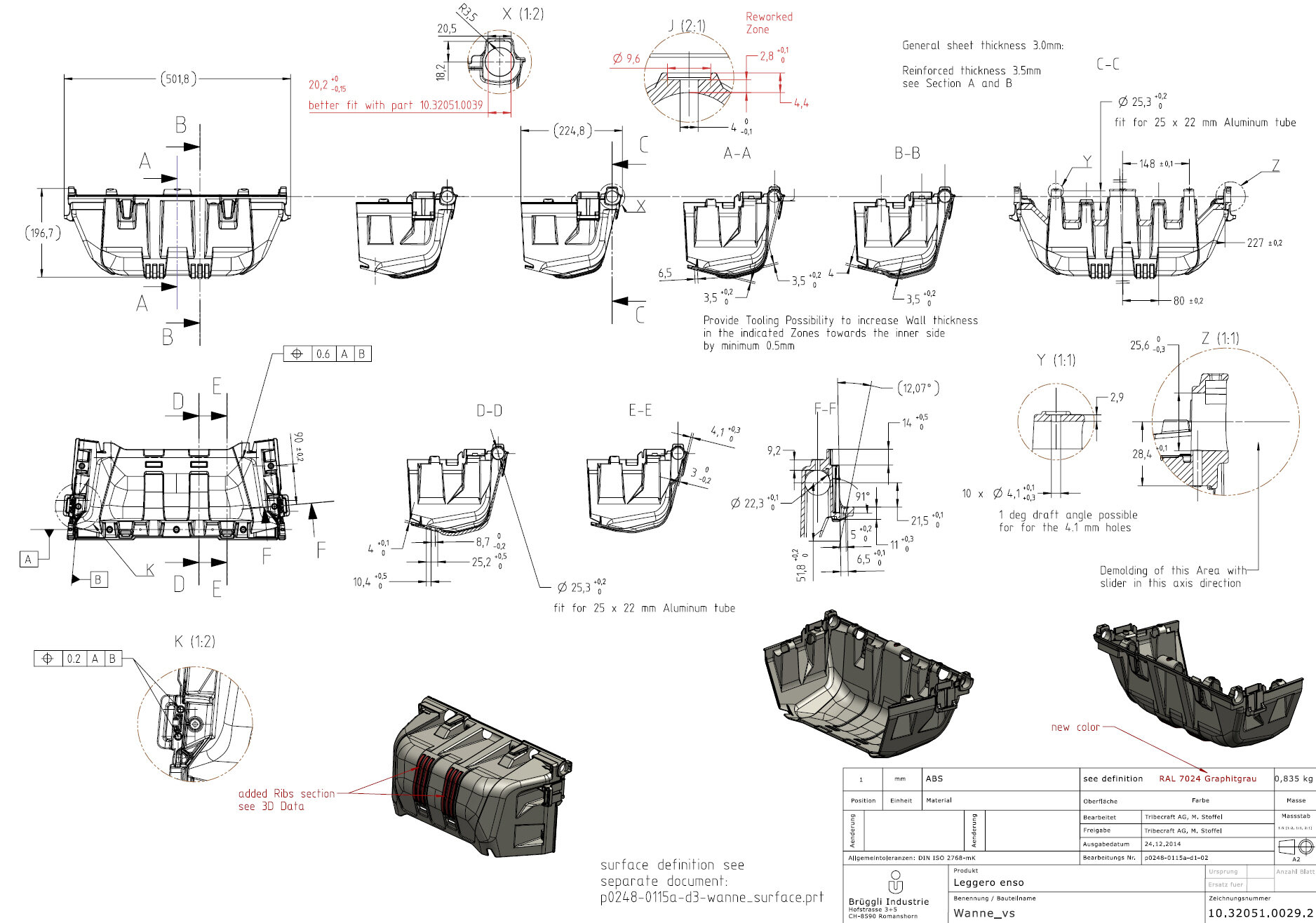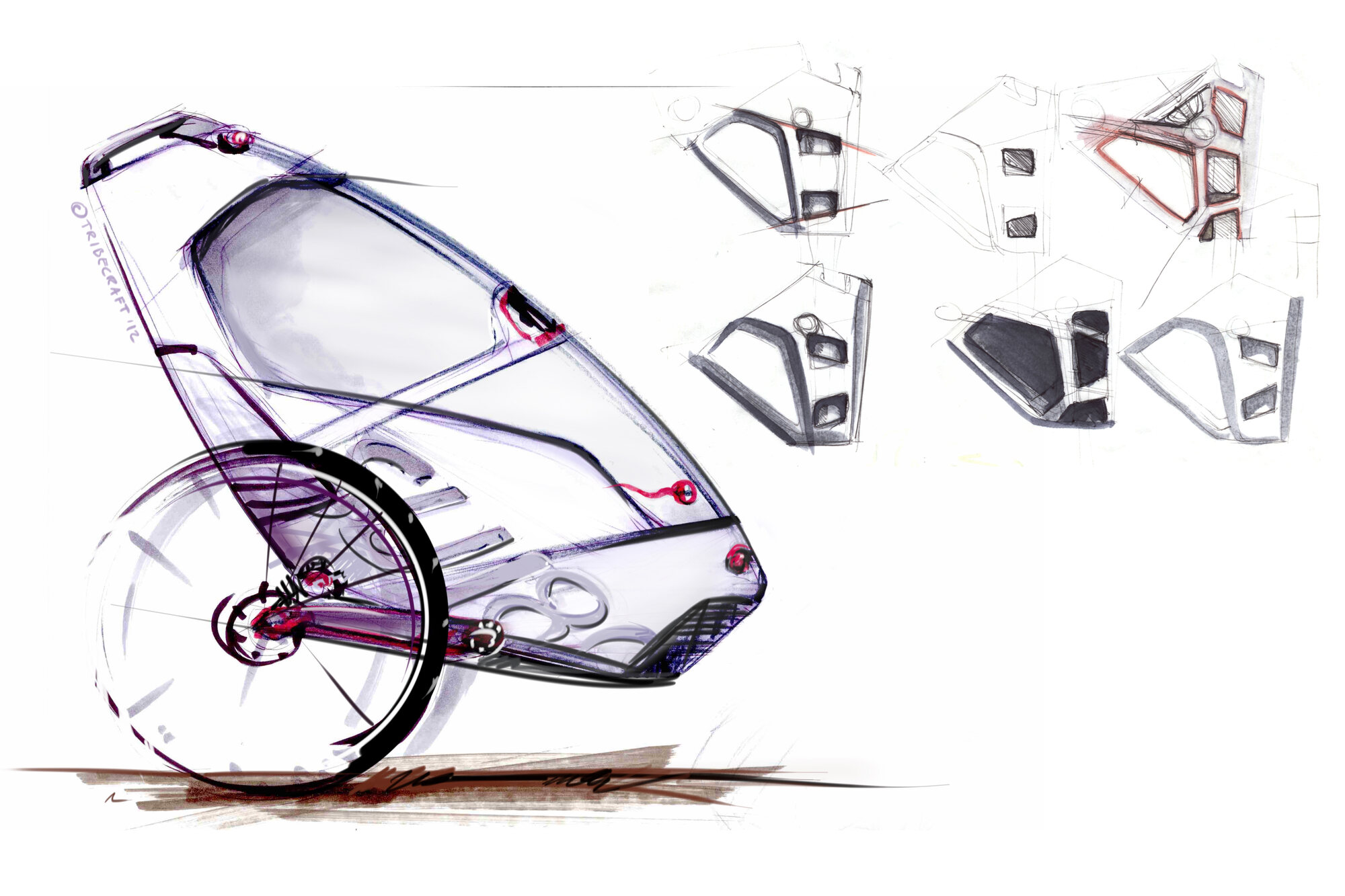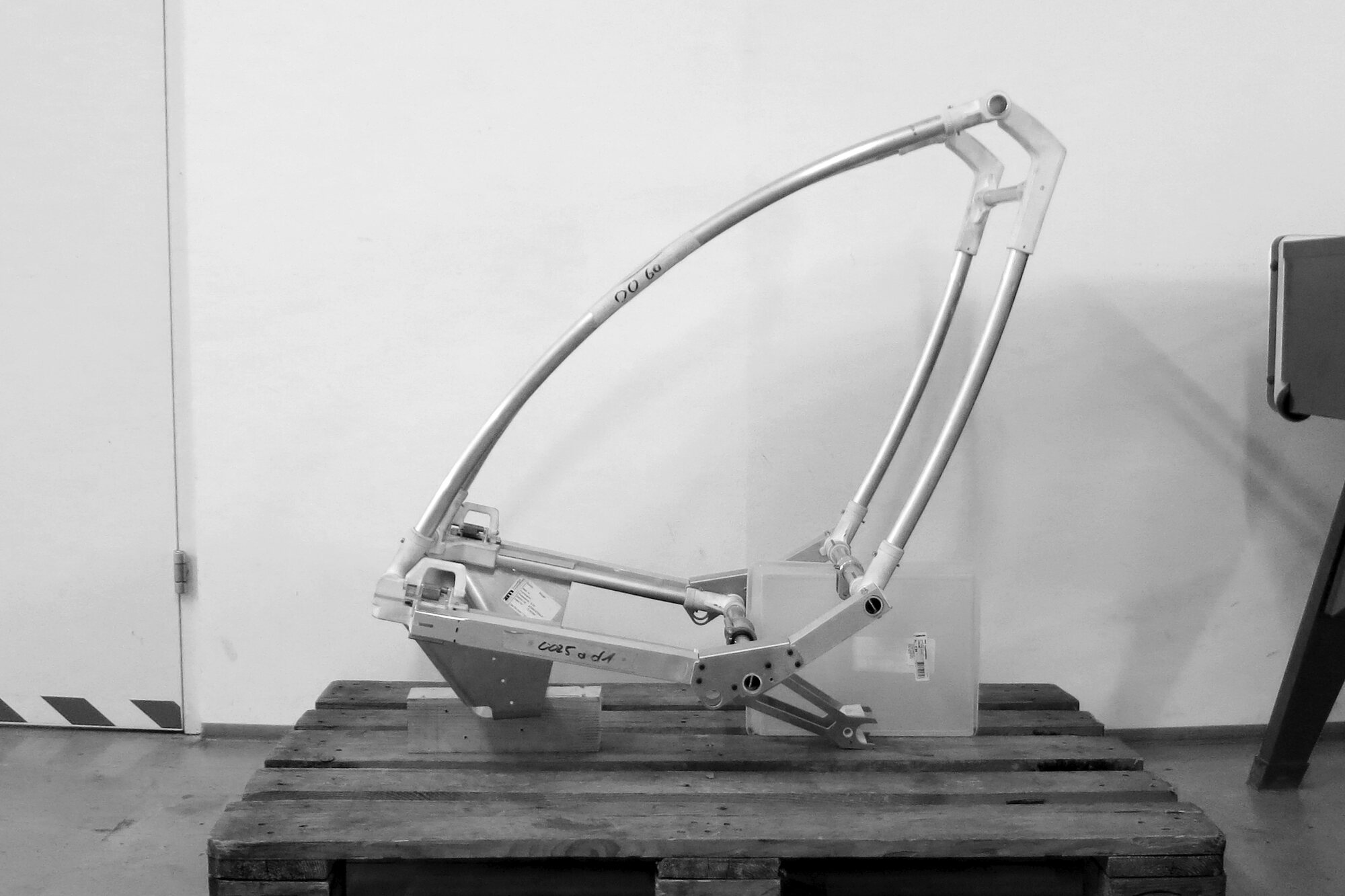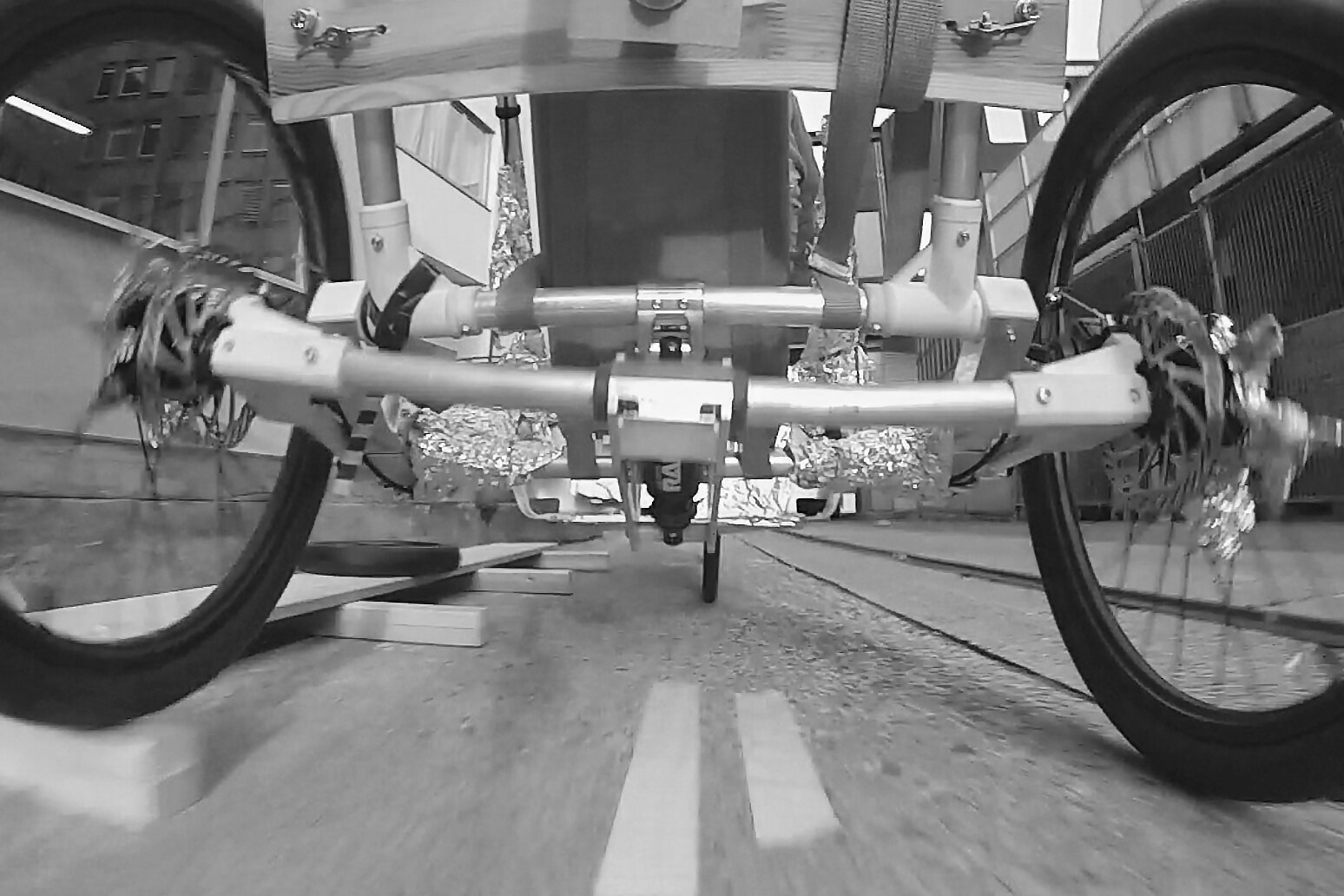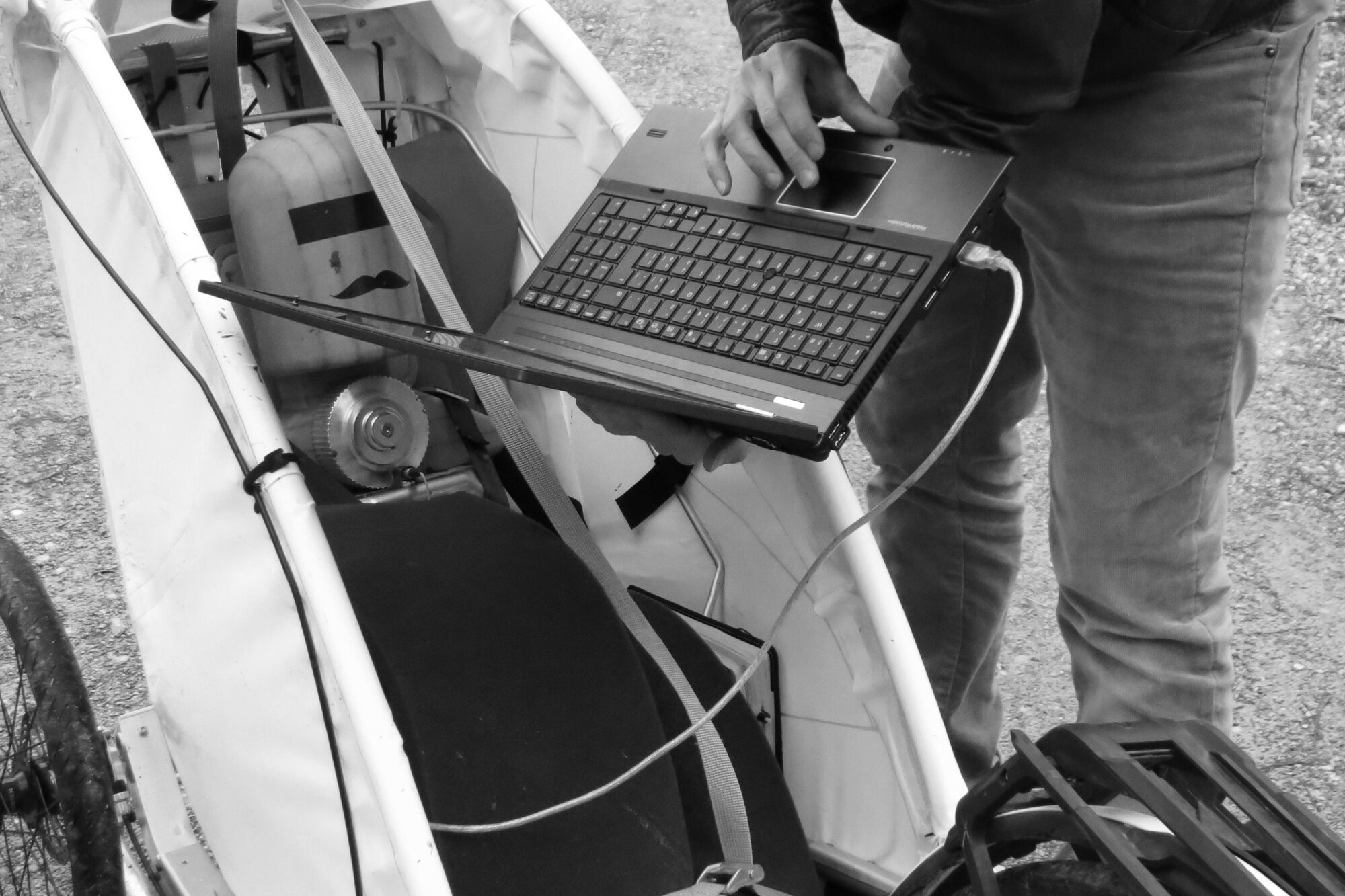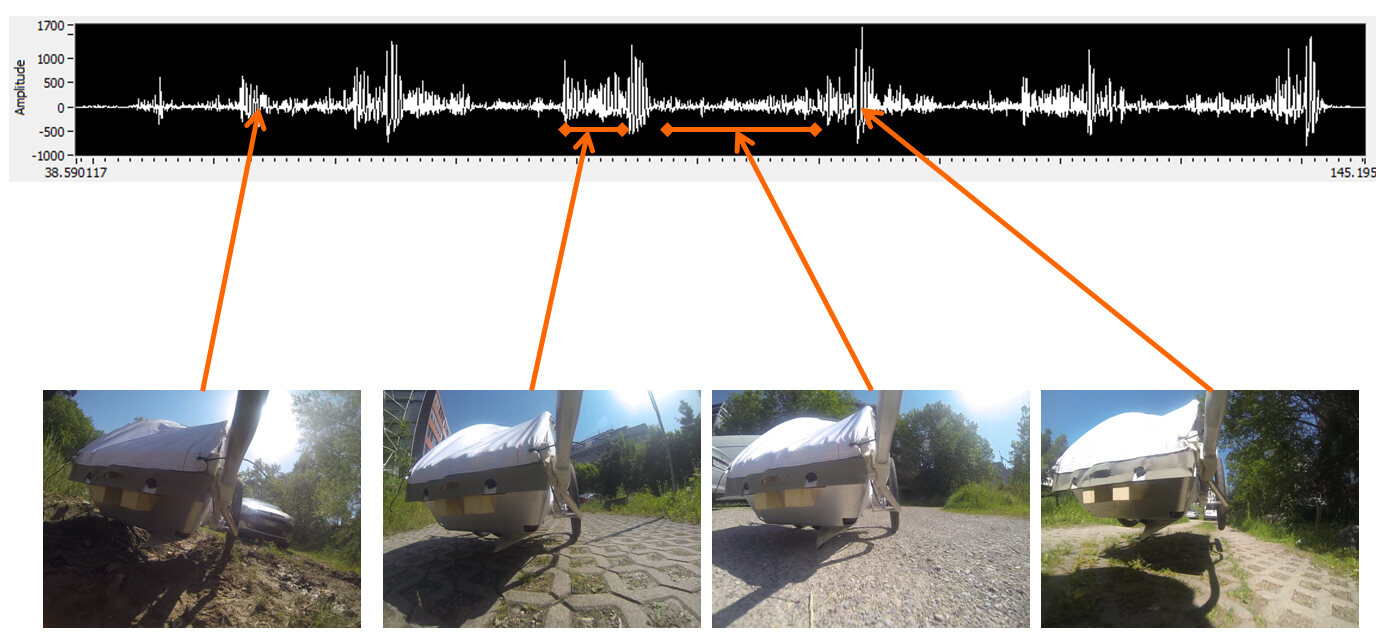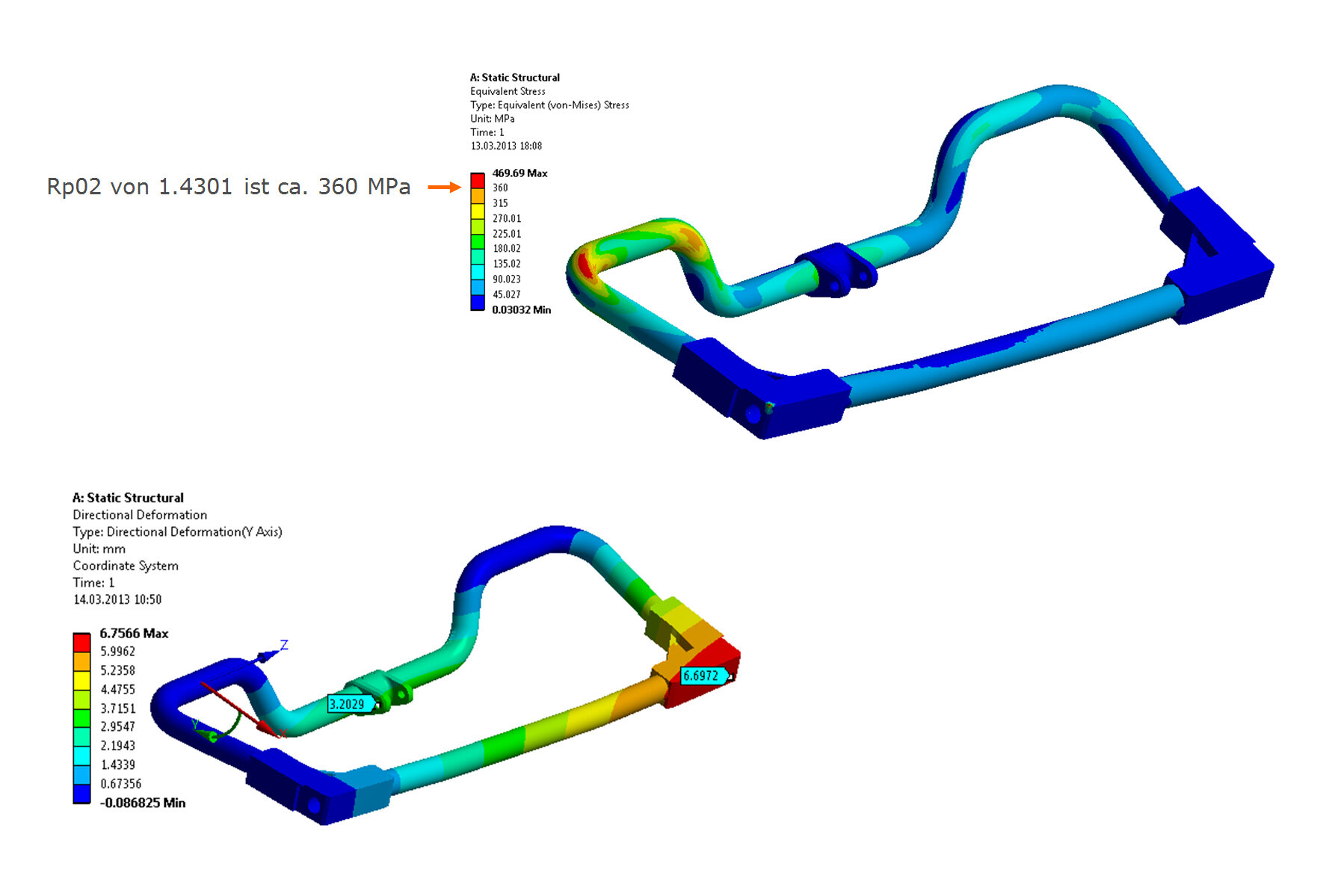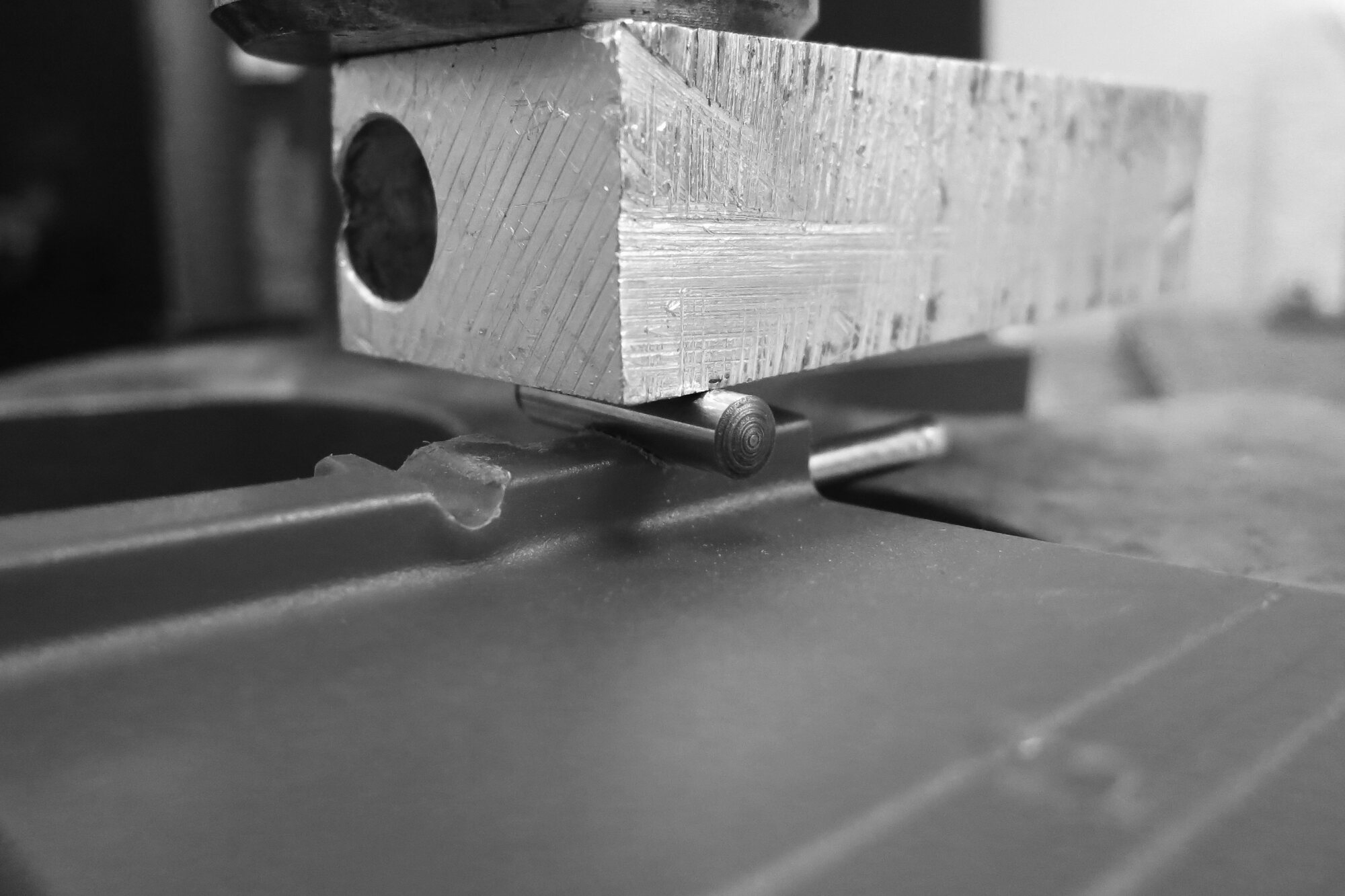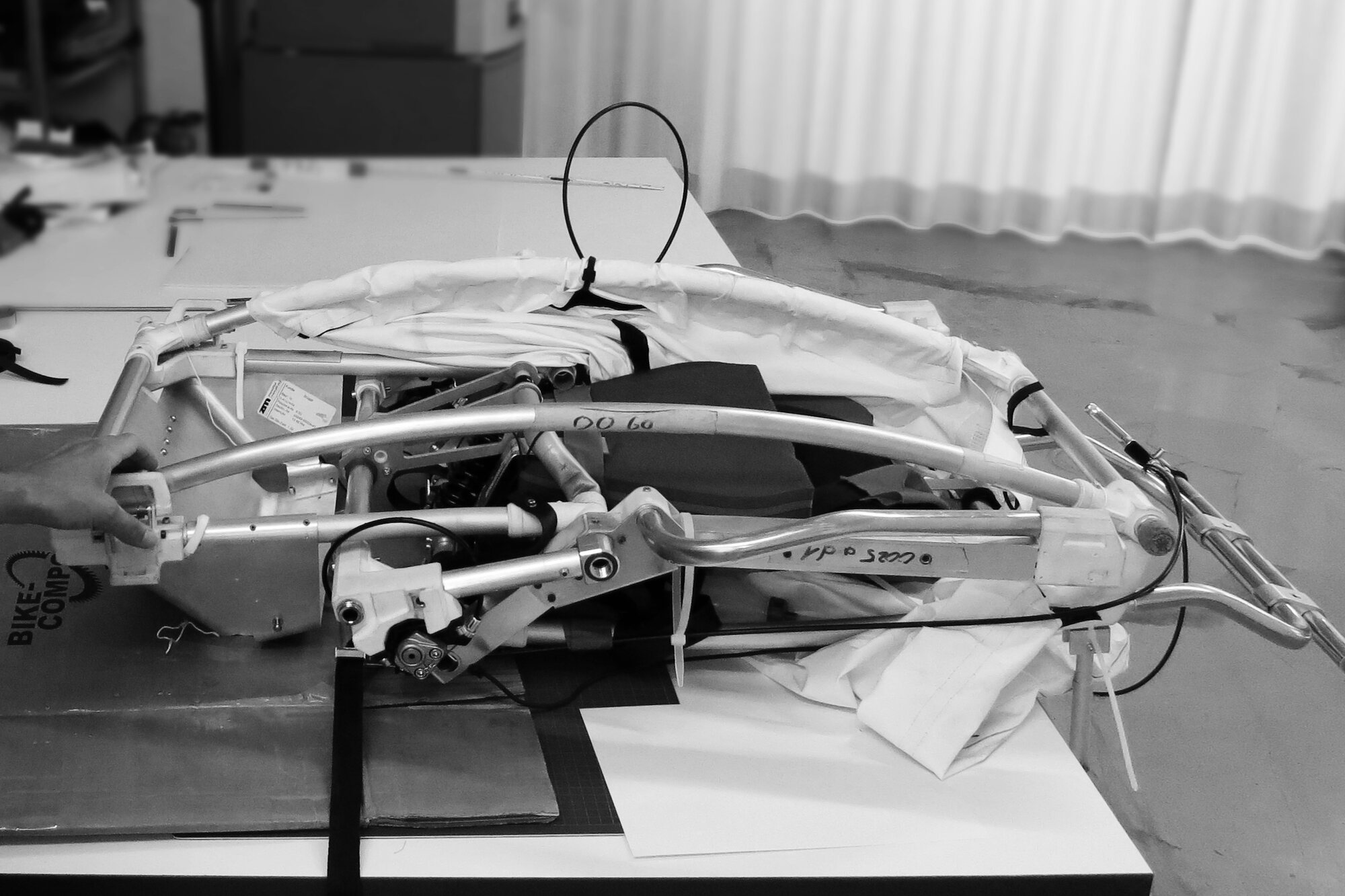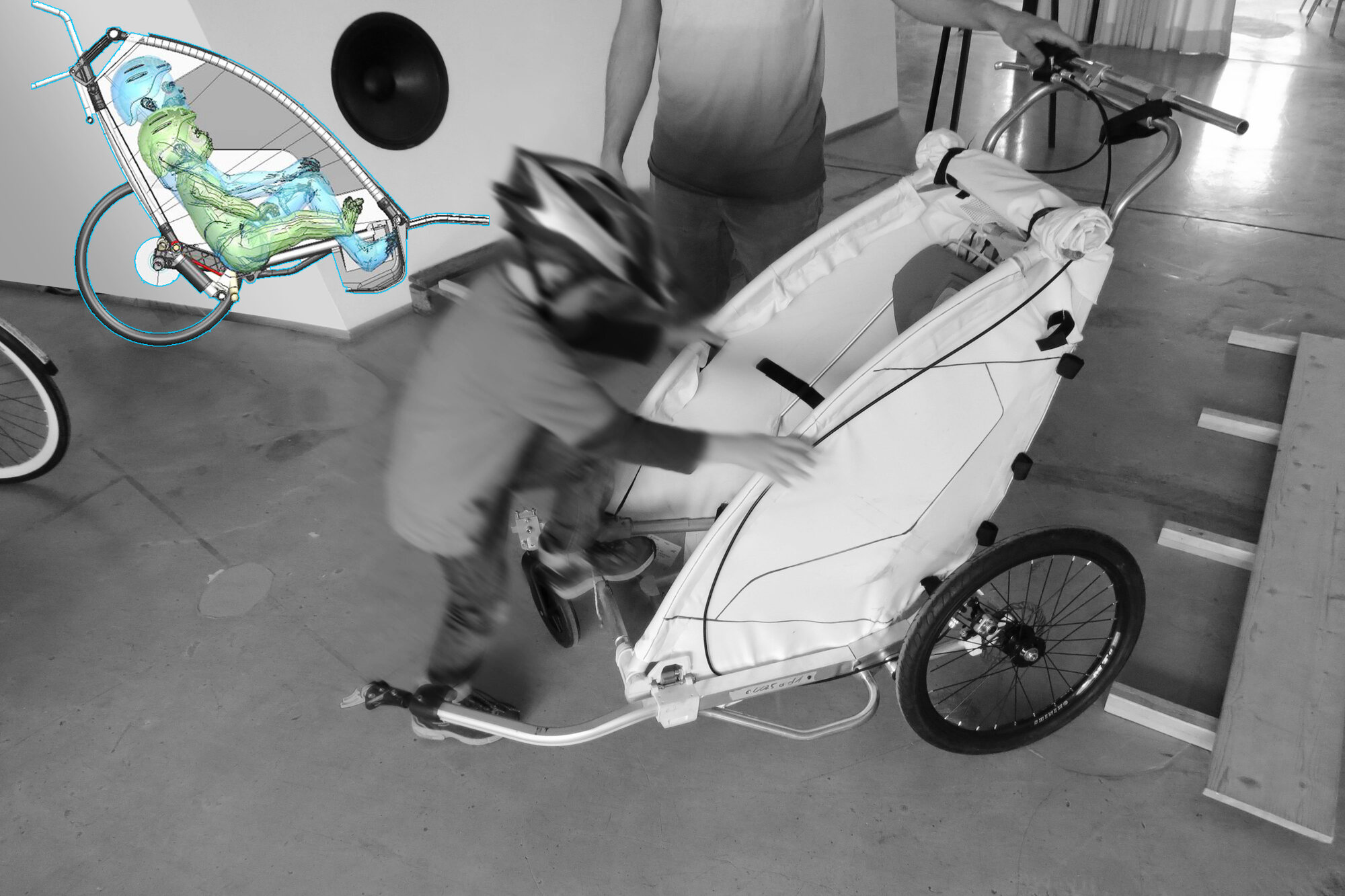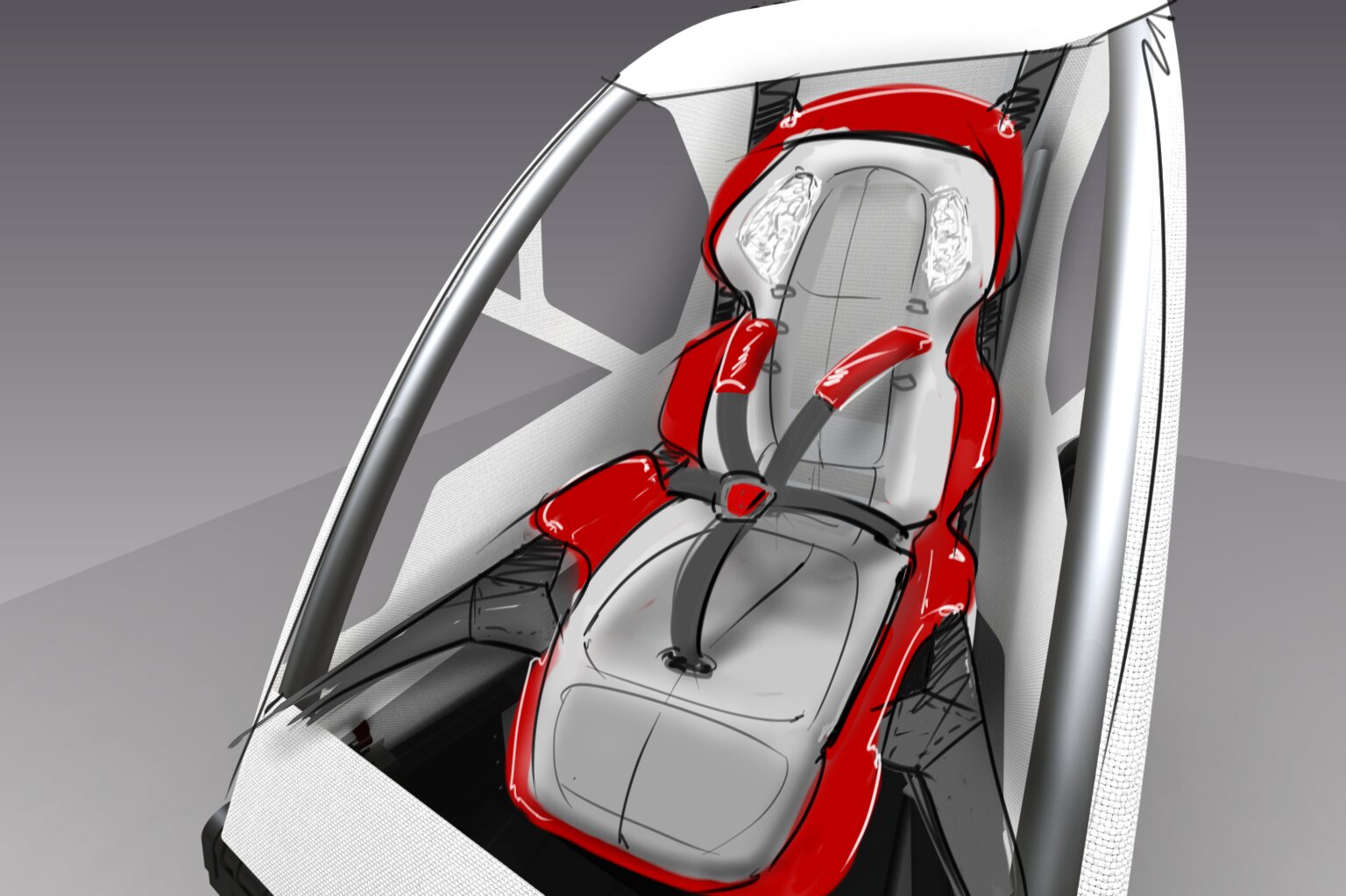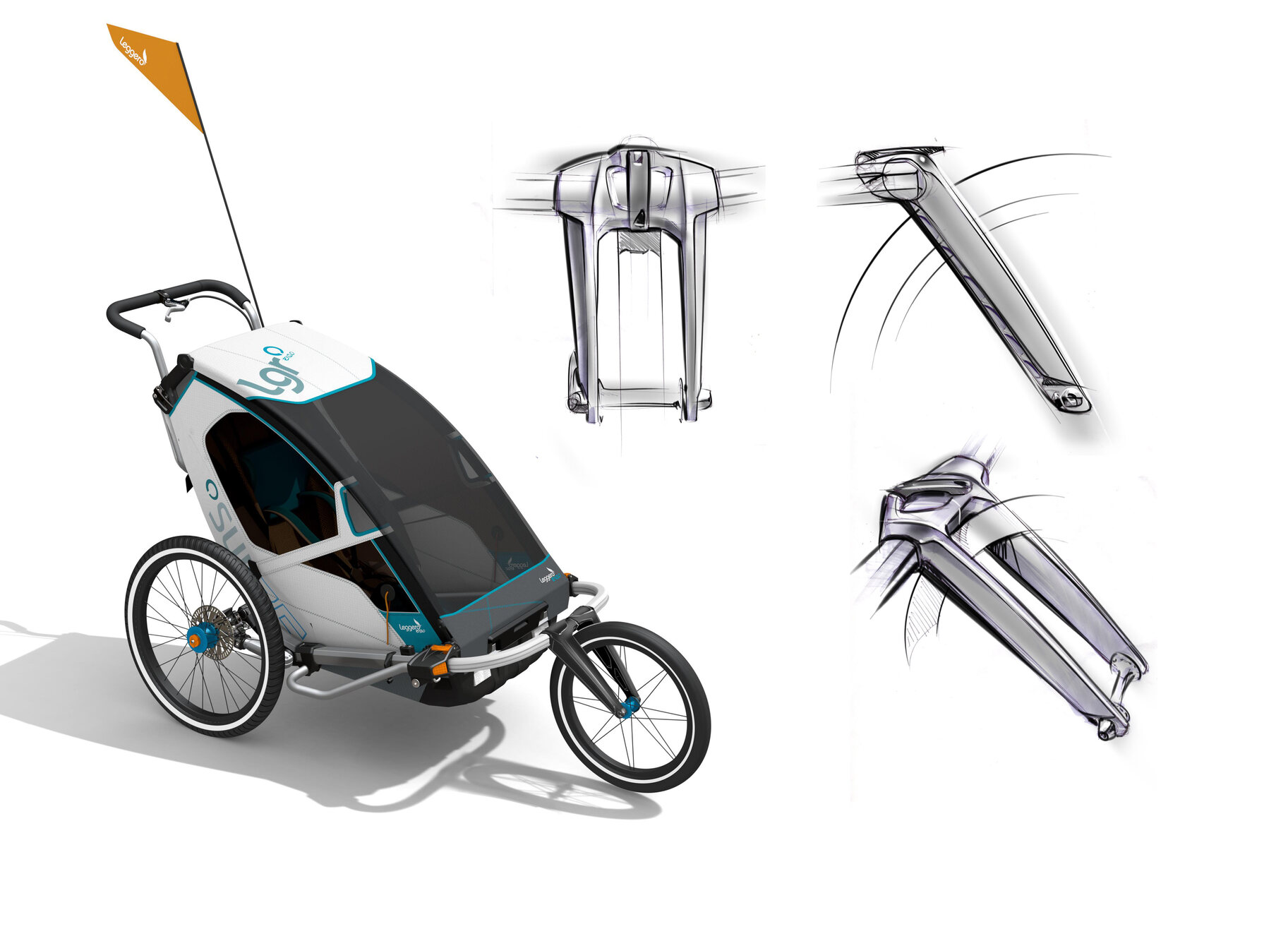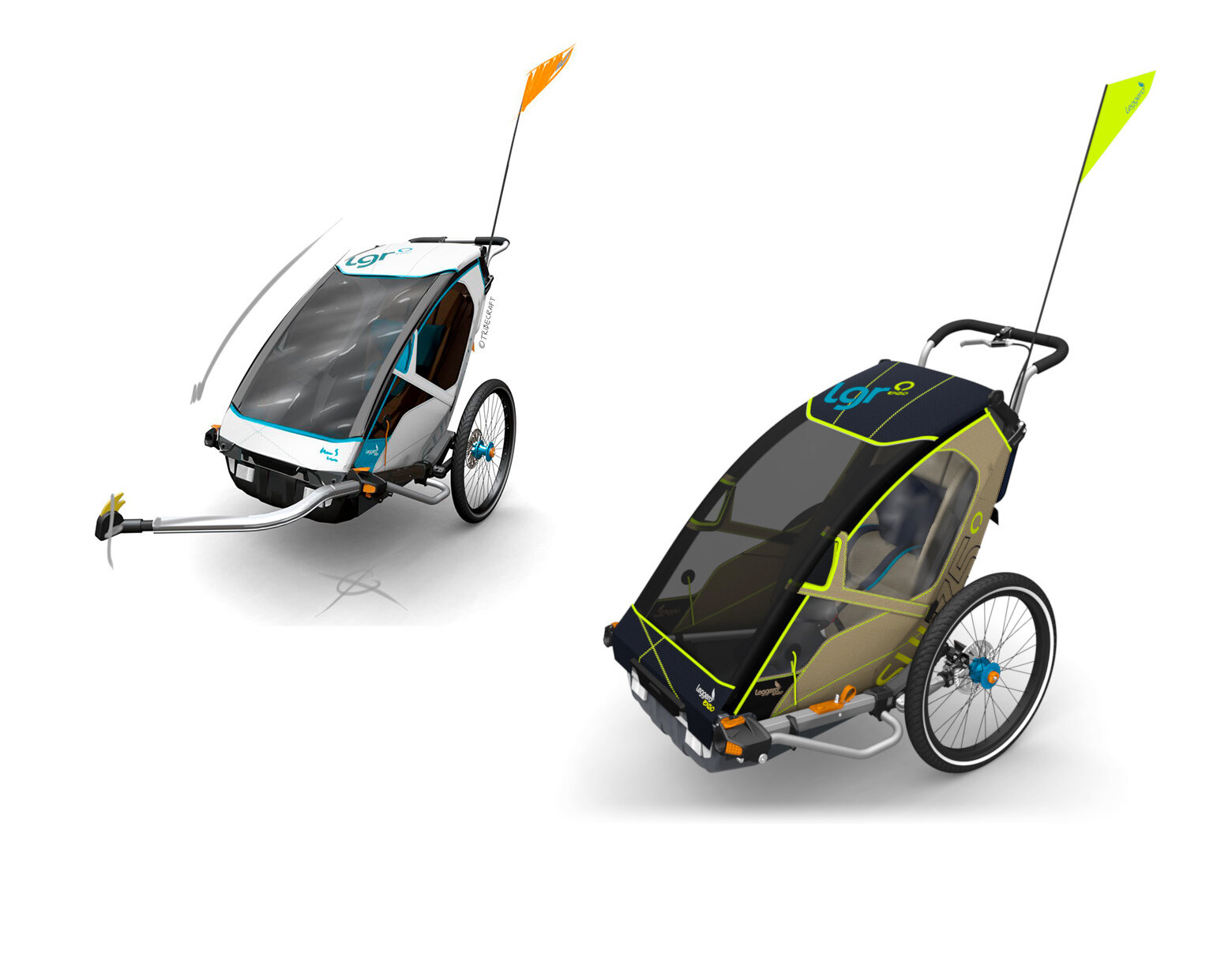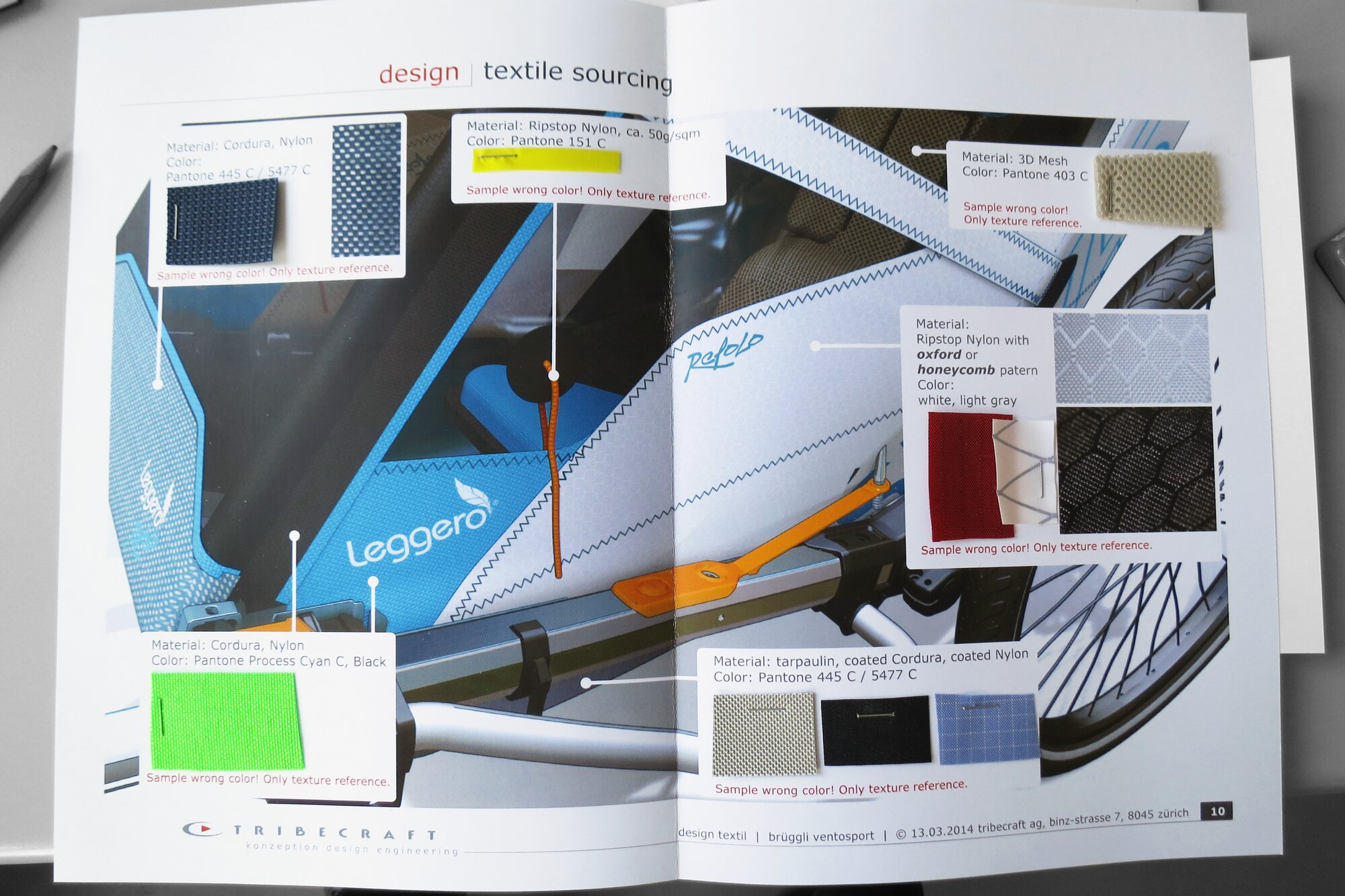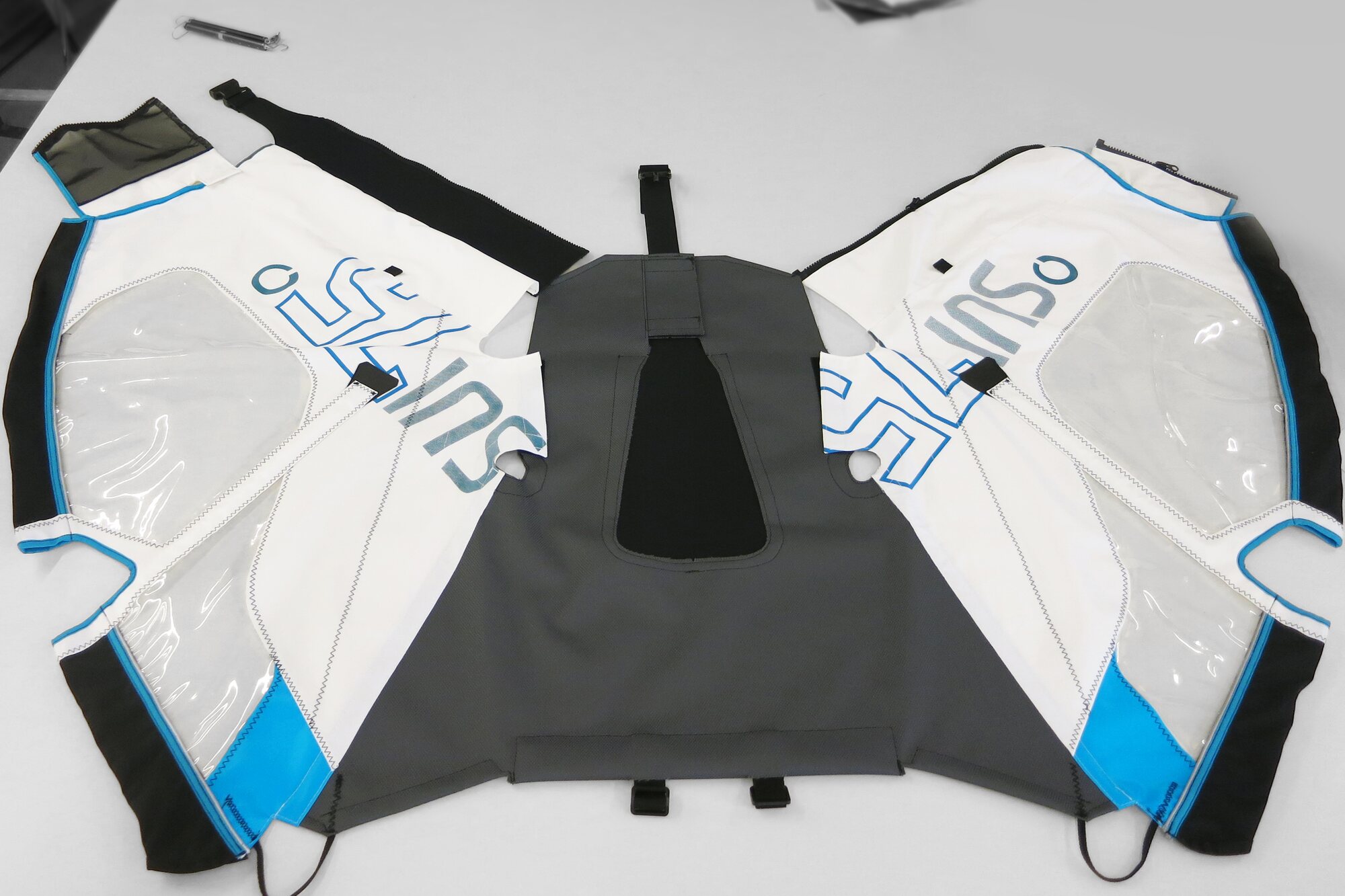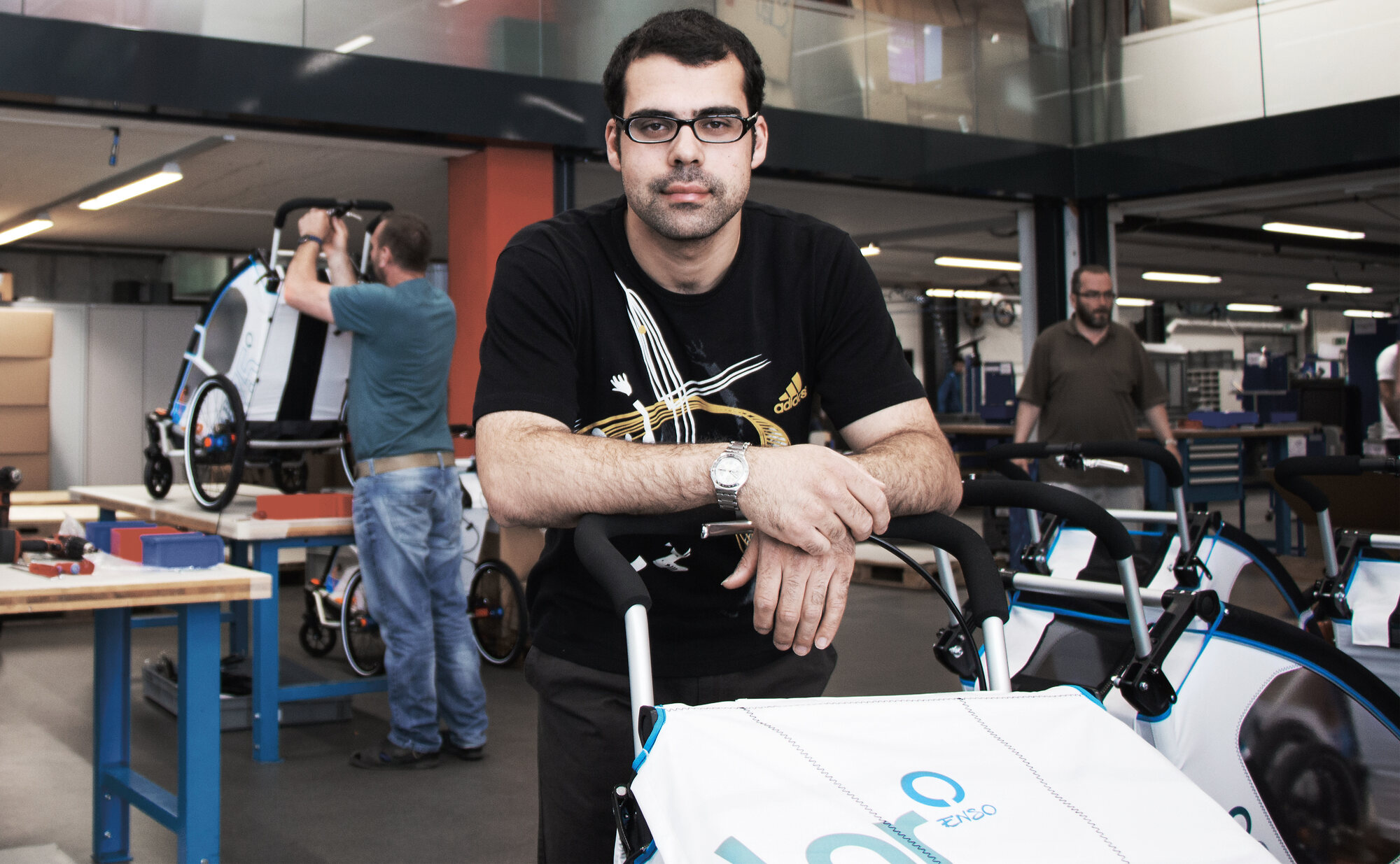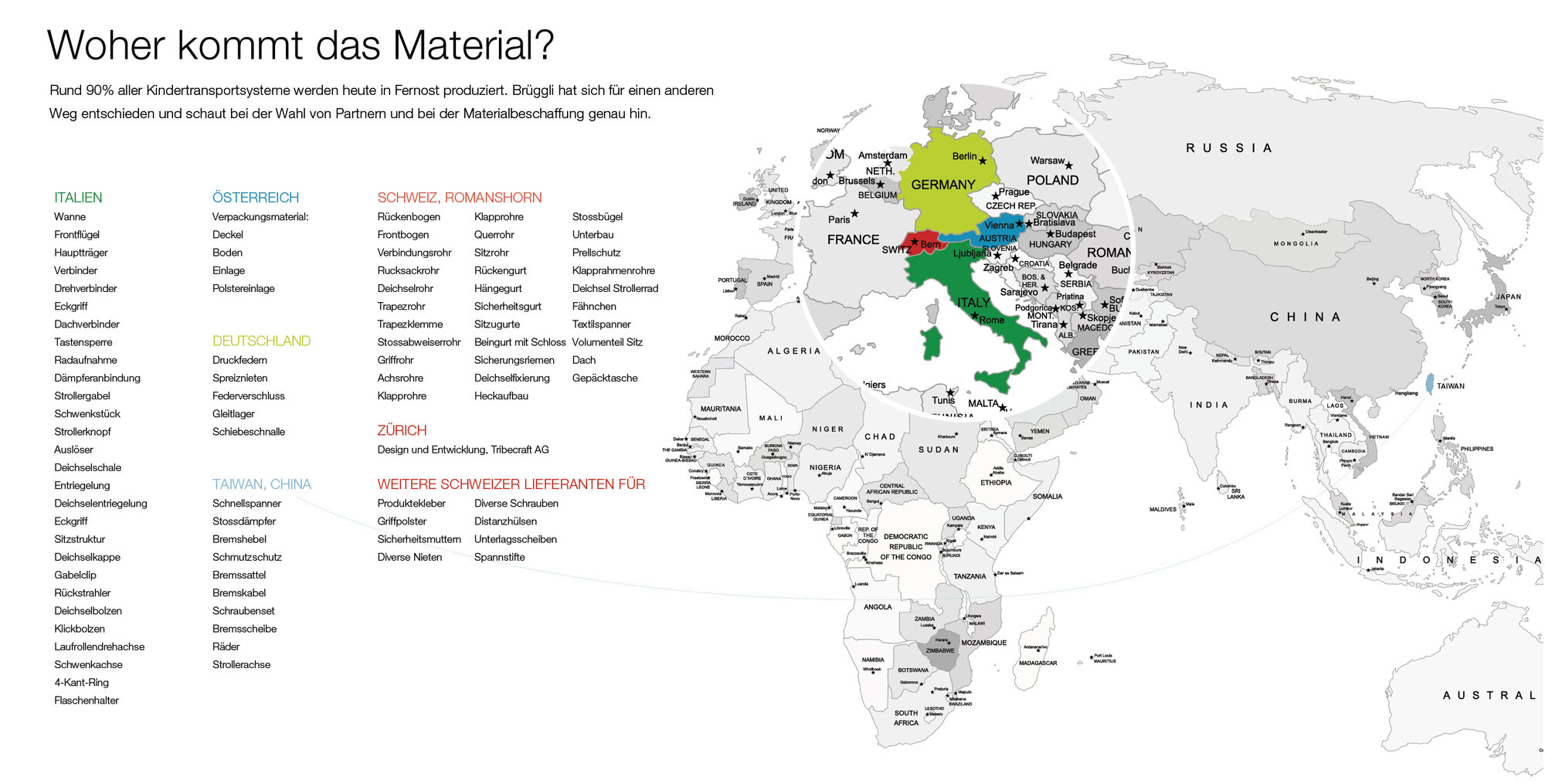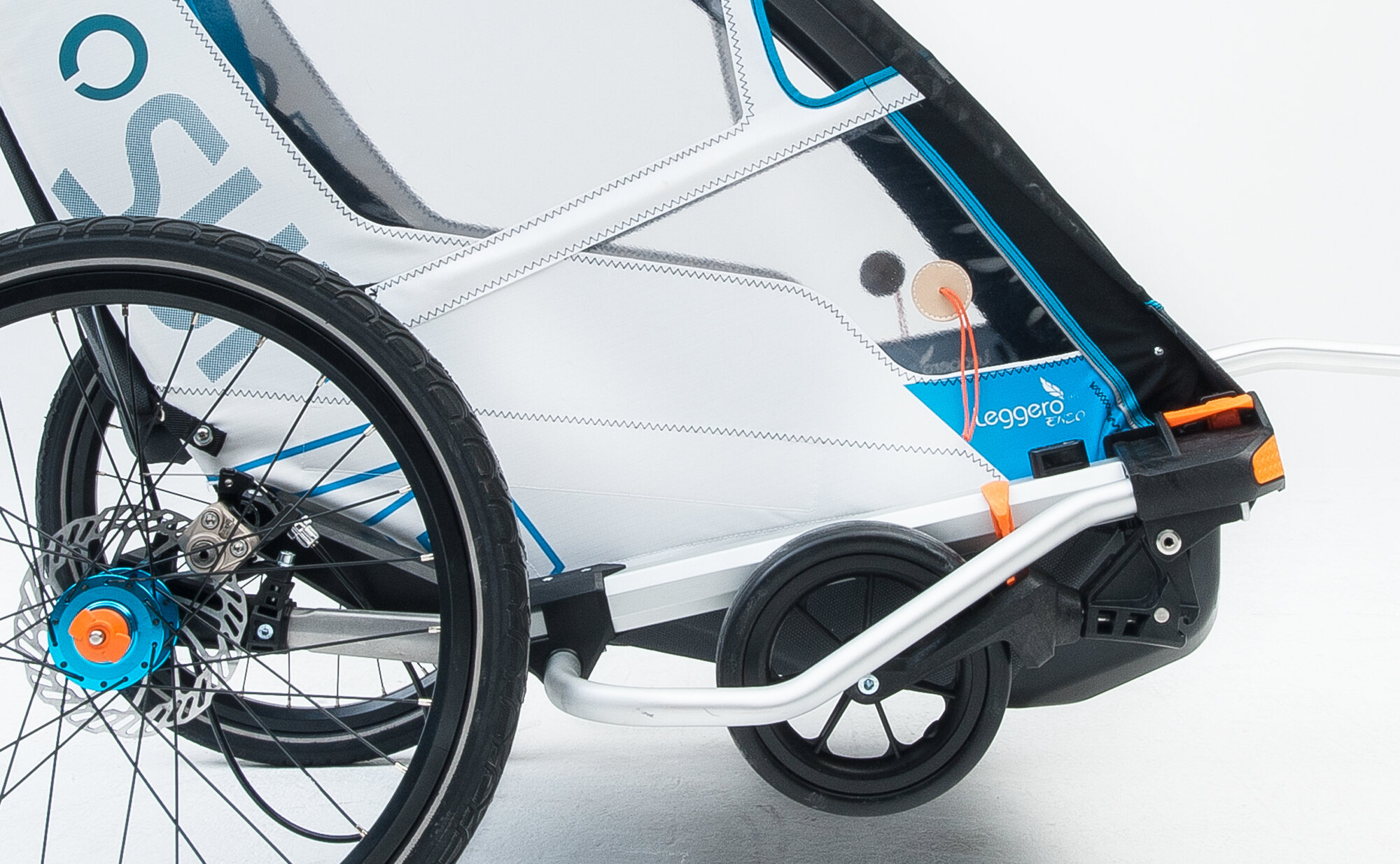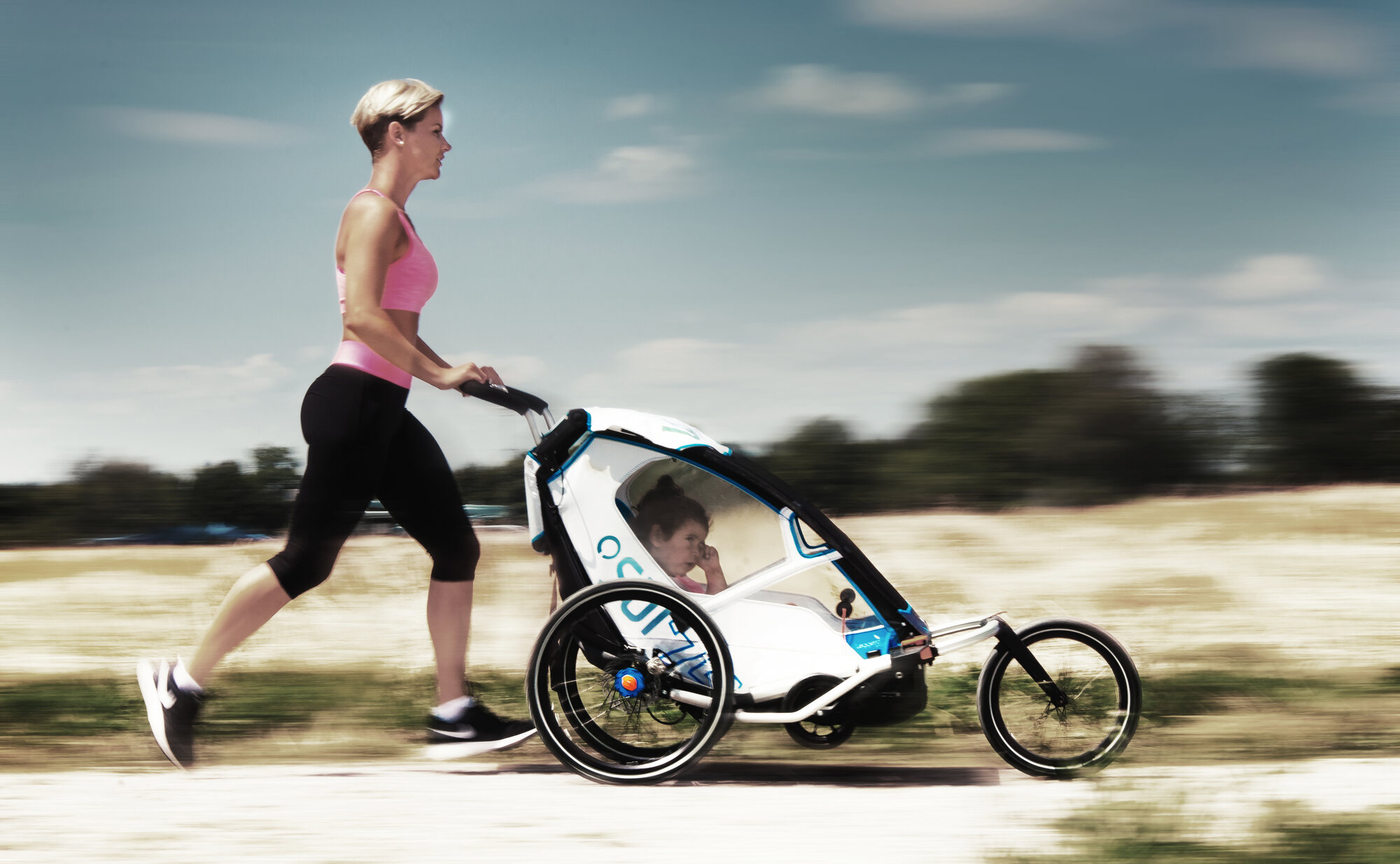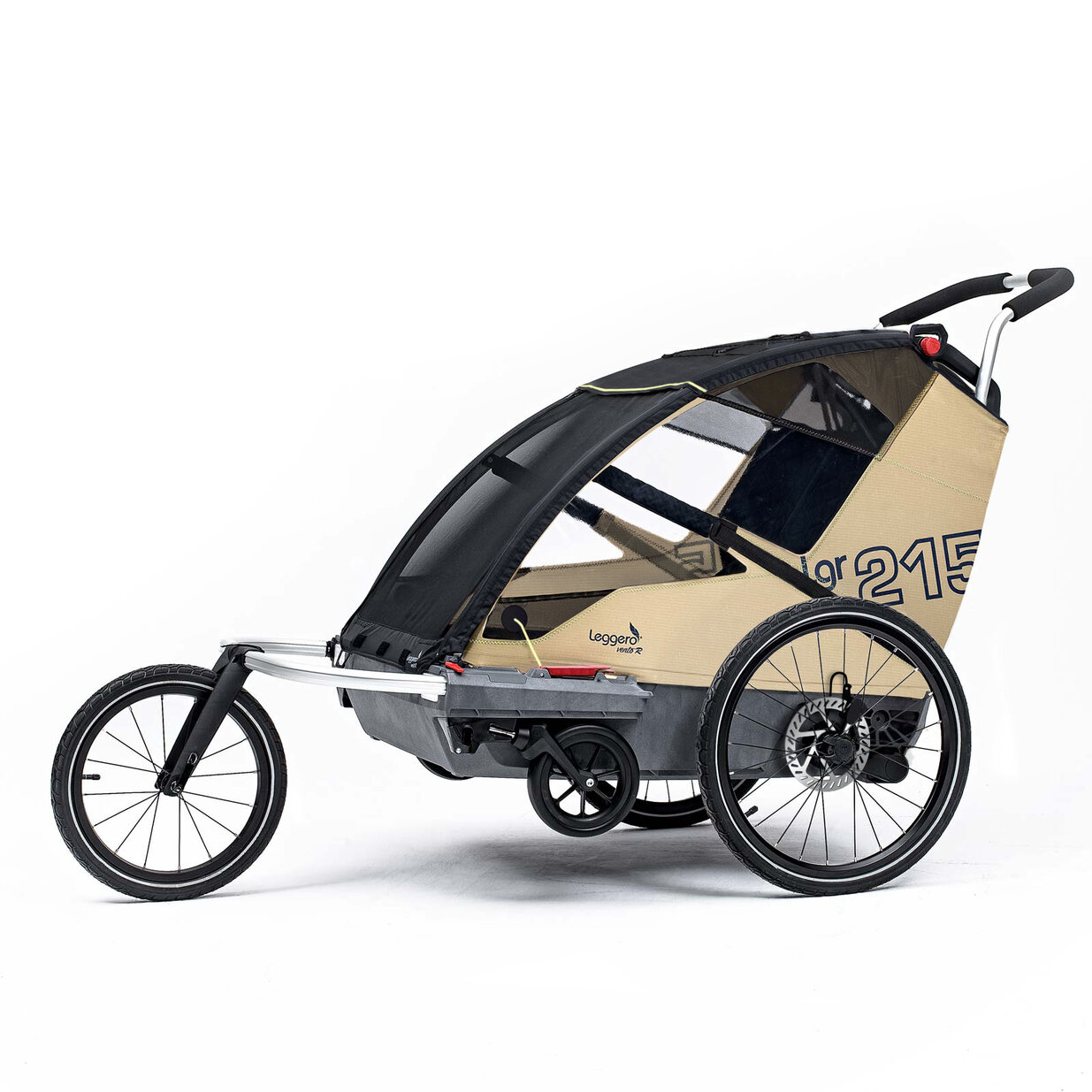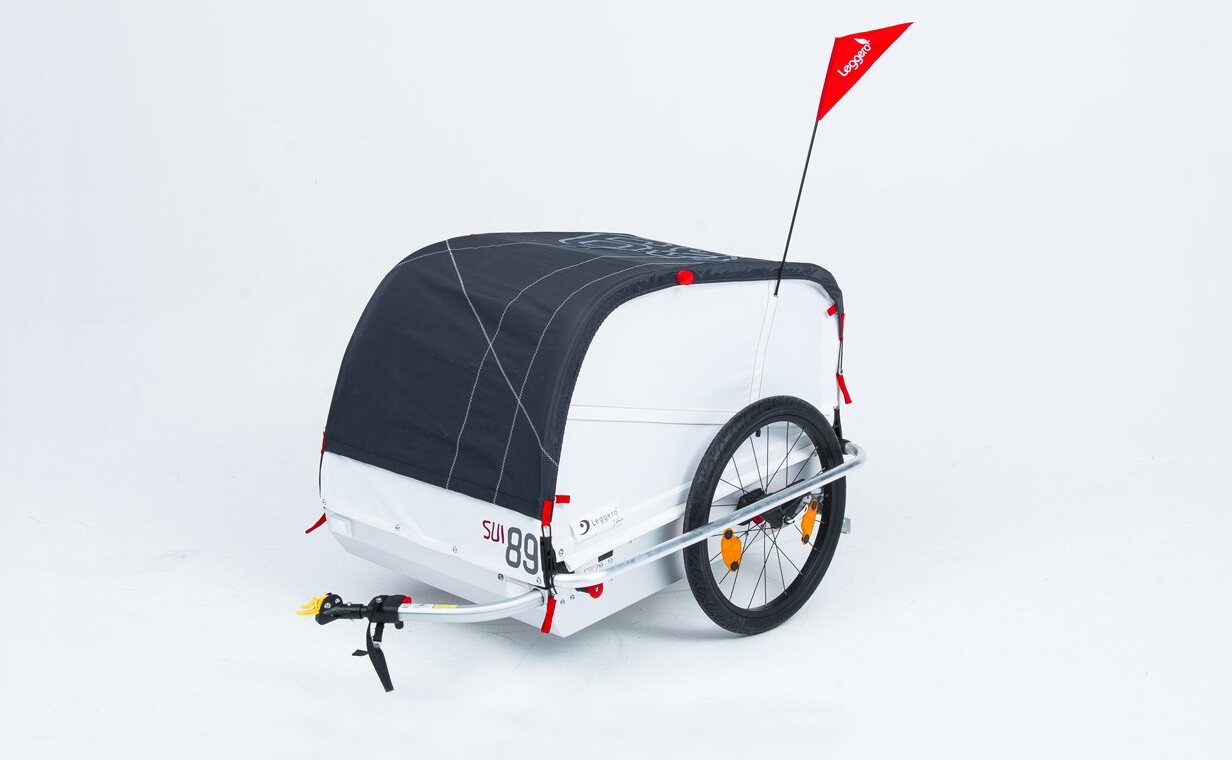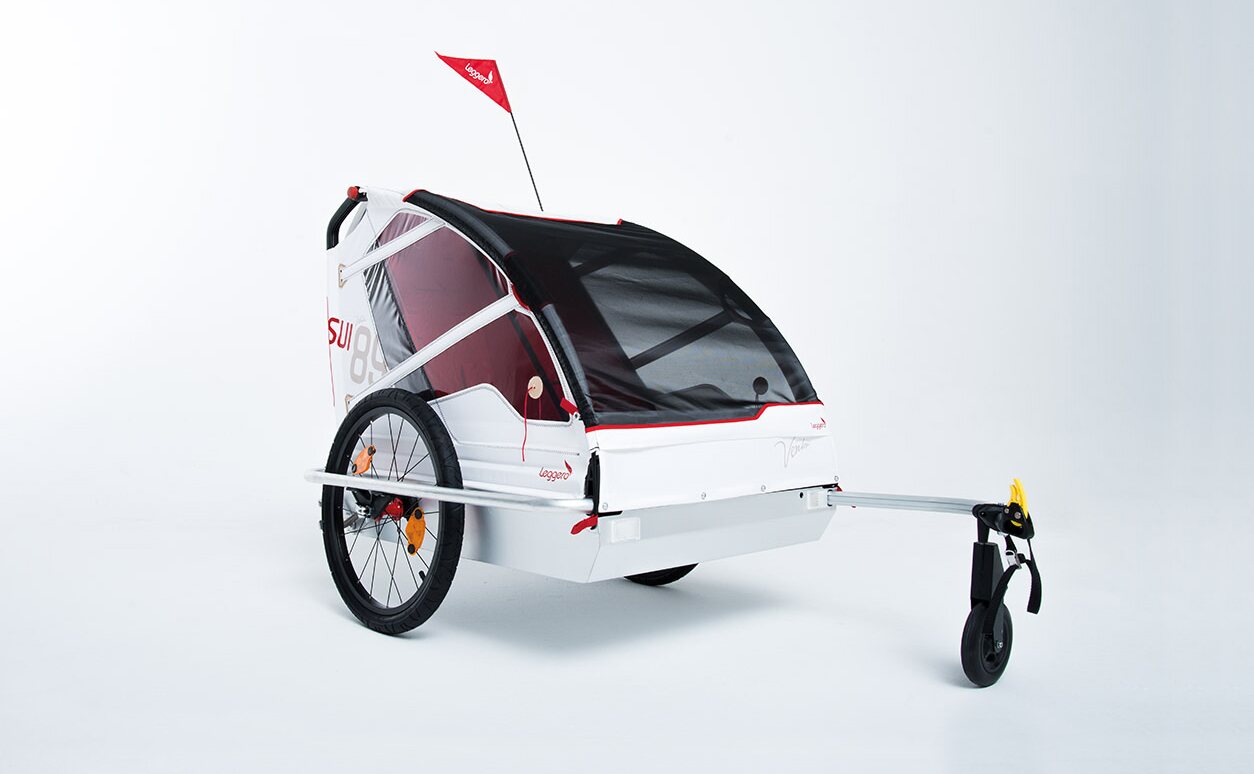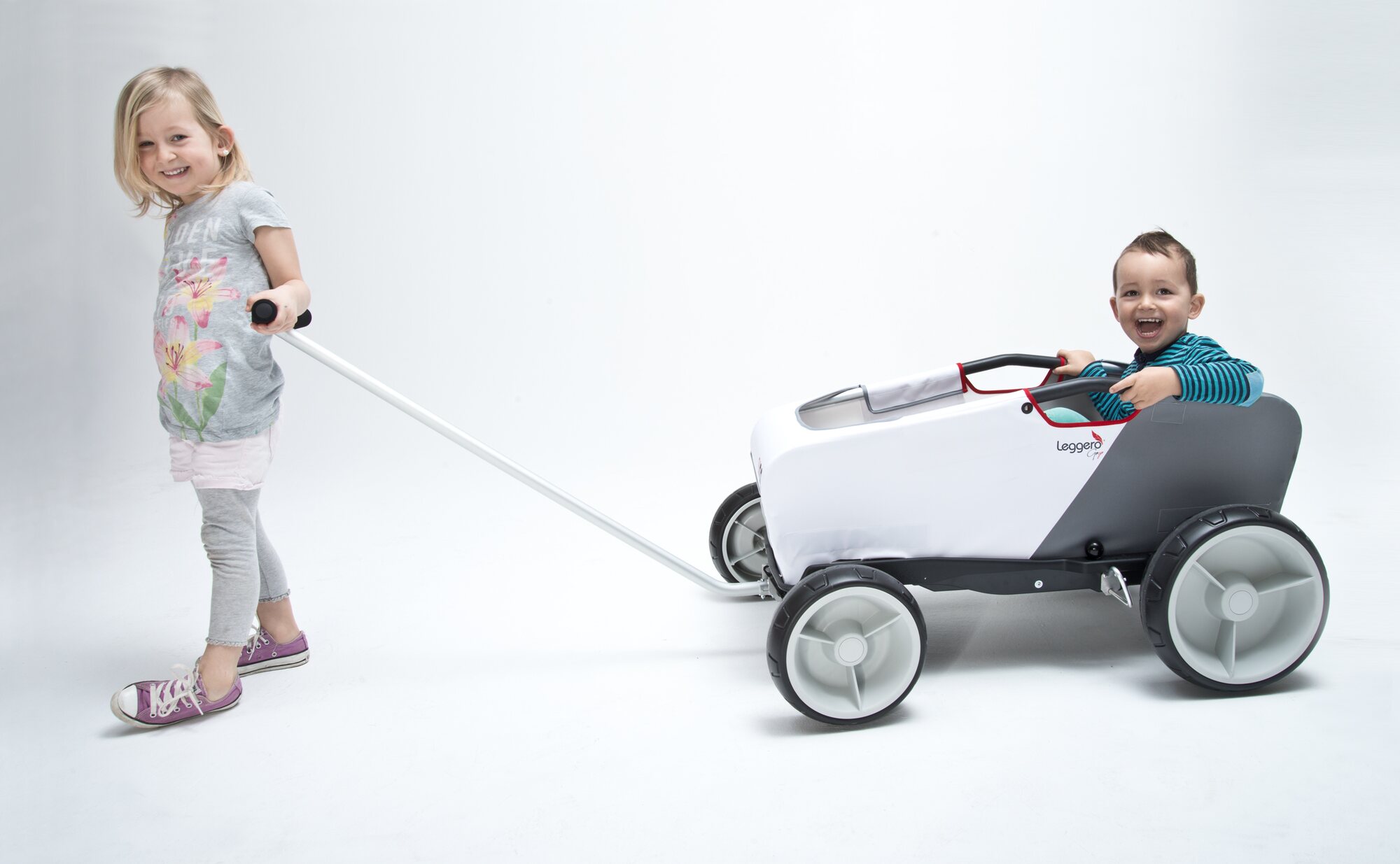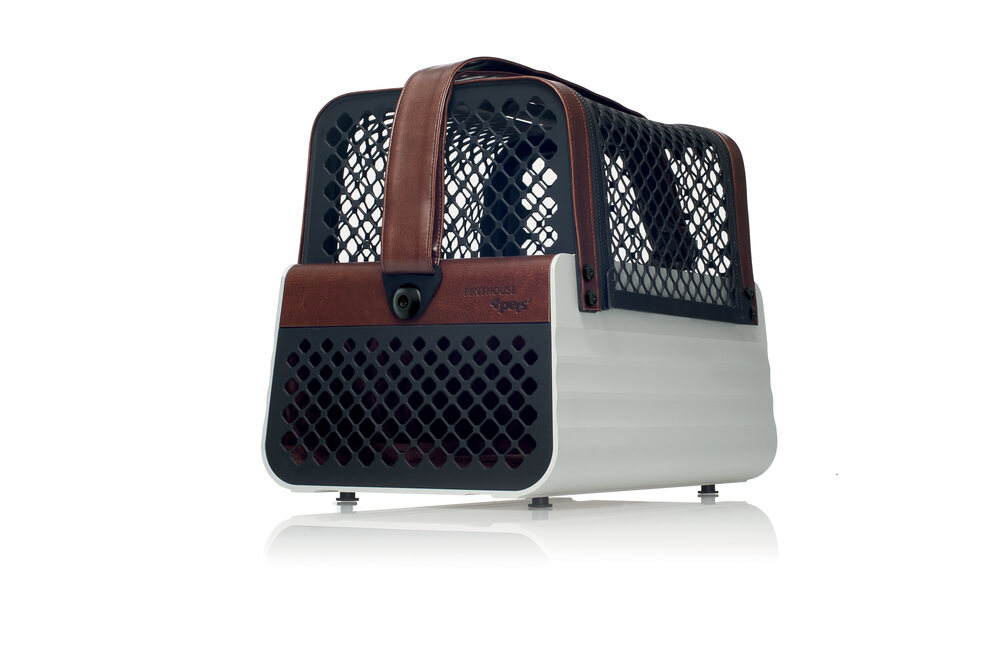Case: Leggero
Trailers — not hangers-on
Adrian Hungerbühler has his own definition of success. Ask this boss what gets him out of bed in the morning, and the one thing you won’t hear is “making as much profit as possible.” Instead, he says, “getting as many people as possible into the regular labor market.” Hungerbühler heads up “Brüggli Industrie”, an initiative run by the Brüggli Association in Romanshorn, Switzerland, where they have set themselves the task of helping people with mental and/or physical disabilities to get ready for the labor market, while also manufacturing top-quality products (such as Leggero’s) using sustainable, ecological and ethical methods.

The Leggero brand has become a byword for child bicycle trailers and is enjoying considerable success; the products have occupied a commanding position on the markets for more than 25 years and in 2015/16, the “Enso” model won Design Prize Switzerland’s top award in the Consumer Goods category. It is also the only trailer to date that meets government safety regulations for both child trailers and prams.
Unlike many of Leggero’s competitors, who have their products manufactured wherever is cheapest, the Swiss firm’s trailers are made in the association’s own factory in the Canton of Thurgau. The emphasis at the company is not primarily on profit; instead, they attempt to integrate their staff, whatever their age, into the world of work by providing a fair environment that accommodates their individual disabilities and is as close to commercial conditions as possible. The workforce is recruited from several sources, including eastern Switzerland’s disability insurance providers, who annually send more than a hundred apprenticeship-seeking school-leavers to Brüggli. Having successfully completed their training, many transition into the so-called “primary” labor market.
For Hungerbühler, this is proof that the system works: “We cooperate closely with the disability insurance providers and are in regular contact with their team.” The training services pay for themselves through the trainees’ work — the association has a business-like and success-based approach, saving the taxpayer any additional outlay. As a result, the Brüggli does not consider itself a sheltered workshop; it sees itself as a supervised educational establishment where employees can continue to develop their skills but will also always have to do their very best.
The Leggero trailers are designed and developed by Tribecraft in Zurich. The innovation lab’s designers and engineers relished the challenges presented by the project’s very specific requirements.

“Other companies want manufacturing solutions that are as specialized and uniform as possible,” says Marco Stoffel, a development engineer at Tribecraft. At Leggero, they are more interested in a varied assembly process that allows the employees to hone their skills. “We always try to incorporate these requirements into the design and manufacturing concept.”
End users should be completely oblivious to this complexity, however. “We think as practically as we possibly can when it comes to the product itself,” says Stoffel. The Enso thus features numerous built-in refinements: its oil-damped suspension can absorb shocks of up to 75mm, ensuring safety off-road and when negotiating curbs. The pram wheels fold out with a simple kick and no other trailer is as easy to fold up and put away. The rainguard lies ready and waiting in the top of the sunshade if there is a sudden cloudburst, and a fold-up “rucksack”, with plenty of space for a shopping bag, provides storage room if required. And then there is a transparent viewing window for parents, with a pocket for a wallet and a cellphone, which can play children’s stories as you go along.

Tribecraft’s developers have been engaged in all aspects of the project — and this has been both important and gratifying; the work of the innovation lab’s engineers and designers is often principally about ideas and concepts, and in some cases, a project is handed over as soon as the first prototypes have been made. With Leggero, however, they have been involved in the entire genesis of the innovation, from drafting the first sketches through designing the production-ready digital model to supervising the crash tests performed on the version that ultimately went into mass production. This has been extremely valuable, as Stoffel points out. “It means we have had to deal with challenges that only crop up late in the implementation process; experience like that has helped us to address important strategic choices at the right time in other projects; and by ‘right time’, I mean early on – at the conceptual stage.”
Gaetano Puopolo, one of the 42 employees in the assembly department in Romanshorn, also has much to say about valuable experience: “The work at Leggero requires concentration. I really like assembling the brakes and mounting the side panels.” He reveals that each task is reassigned every day, ensuring variety in the assembly work and allowing people to get genuinely involved. With evident satisfaction, he continues: “I see loads of people on the street with a Leggero, and it makes me proud, because I worked on it — I have done something good, something beautiful.”
Design prize fuels a funding project

With the money from winning the Design Prize Switzerland for the Leggero Enso, Tribecraft and Brüggli funded a project to foster young designers Maya Martin and Sophie Glenzer. Read more...

